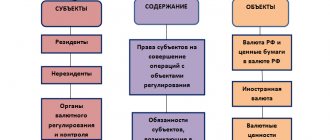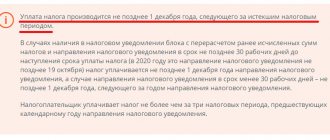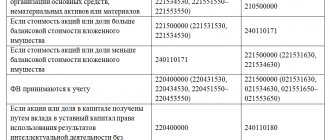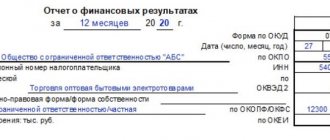Basic Federal Law on transactions on financial platforms
According to clause 1, part 1, art. 2 of the Federal Law of July 20, 2020 No. 211-FZ “On carrying out financial transactions using a financial platform”, the financial platform itself is an information system that ensures the interaction of financial organizations or issuers with consumers of financial services via the Internet to ensure the possibility of making financial transactions. Access to it is provided by the operator of the financial platform, who is a member of the corresponding register.
Law No. 211-FZ was developed by State Duma deputies in accordance with:
- with the Strategy for the Development of the Information Society in Russia for 2017-2030 (Decree of the President of the Russian Federation dated 05/09/2017 No. 203);
- program “Digital Economy of the Russian Federation” (approved by order of the Government of the Russian Federation dated July 28, 2017 No. 1632-r);
- The main directions of development of financial technologies for the period 2018-2020. (approved by the Board of Directors of the Central Bank on December 15, 2017).
Federal Law of July 24, 2009 No. 212-FZ
1. The following are not subject to insurance premiums for payers of insurance premiums specified in paragraph 1 of part 1 of Article 5 of this Federal Law:
1) state benefits paid in accordance with the legislation of the Russian Federation, legislative acts of the constituent entities of the Russian Federation, decisions of representative bodies of local government, including unemployment benefits, as well as benefits and other types of compulsory insurance coverage for compulsory social insurance;
2) all types of compensation payments established by the legislation of the Russian Federation, legislative acts of the constituent entities of the Russian Federation, decisions of representative bodies of local self-government (within the limits of the norms established in accordance with the legislation of the Russian Federation), related to:
a) with compensation for harm caused by injury or other damage to health;
b) with the free provision of residential premises, payment for residential premises and utilities, food and products, fuel or appropriate monetary compensation;
c) with payment of the cost and (or) issuance of the due allowance in kind, as well as with the payment of funds in exchange for this allowance;
d) with payment of the cost of food, sports equipment, equipment, sports and dress uniforms received by athletes and employees of physical education and sports organizations for the training process and participation in sports competitions, as well as sports judges for participation in sports competitions;
(Subparagraph supplemented on January 1, 2010 by Federal Law of November 25, 2009 No. 276-FZ; as amended by Federal Law of February 29, 2012 No. 16-FZ. - See previous wording.)
e) with the dismissal of employees, with the exception of:
compensation for unused vacation;
the amount of payments in the form of severance pay and average monthly earnings for the period of employment in the part exceeding in general three times the average monthly earnings or six times the average monthly earnings for workers dismissed from organizations located in the Far North and equivalent areas;
compensation to the manager, deputy managers and chief accountant of the organization in a portion exceeding three times the average monthly salary;
(Subclause as amended, entered into force on January 1, 2015 by Federal Law of June 28, 2014 No. 188-FZ. - See previous edition.)
f) with reimbursement of expenses for professional training, retraining and advanced training of employees;
g) with expenses of an individual in connection with the performance of work, provision of services under civil law contracts;
h) with the employment of workers dismissed in connection with the implementation of measures to reduce the number or staff, reorganization or liquidation of the organization, in connection with the termination of activities by individuals as individual entrepreneurs, termination of powers by notaries engaged in private practice, and termination of the status of a lawyer, as well as in connection with the termination of activities by other individuals whose professional activities in accordance with federal laws are subject to state registration and (or) licensing;
i) with the performance by an individual of labor duties, including in connection with moving to work in another area, with the exception of:
payments in cash for work under difficult, harmful and (or) dangerous working conditions, except for compensation payments in an amount equivalent to the cost of milk or other equivalent food products;
payments in foreign currency in lieu of daily allowances made in accordance with the legislation of the Russian Federation by Russian shipping companies to crew members of ships sailing abroad, as well as payments in foreign currency to crew members of Russian aircraft operating international flights;
compensation payments for unused vacation not related to the dismissal of employees (paragraph additionally included from January 1, 2011 by Federal Law of December 8, 2010 No. 339-FZ);
3) the amount of one-time financial assistance provided by insurance premium payers:
a) to individuals in connection with a natural disaster or other emergency in order to compensate for material damage caused to them or harm to their health, as well as individuals who suffered from terrorist acts on the territory of the Russian Federation;
b) to an employee in connection with the death of a member (members) of his family;
c) to employees (parents, adoptive parents, guardians) at the birth (adoption) of a child, paid during the first year after birth (adoption), but not more than 50,000 rubles for each child;
4) income (except for wages of employees) received by members of duly registered family (tribal) communities of indigenous peoples of the North, Siberia and the Far East of the Russian Federation from the sale of products obtained as a result of their traditional types of fishing (clause added from 1 January 2011 Federal Law of December 8, 2010 No. 339-FZ - see previous edition);
5) the amount of insurance payments (contributions) for compulsory insurance of employees, carried out by the payer of insurance premiums in the manner established by the legislation of the Russian Federation, the amount of payments (contributions) of the payer of insurance premiums under contracts of voluntary personal insurance of employees, concluded for a period of at least one year, providing for payment insurers of medical expenses of these insured persons, the amount of payments (contributions) of the payer of insurance premiums under contracts for the provision of medical services to employees, concluded for a period of at least one year with medical organizations that have appropriate licenses to carry out medical activities, issued in accordance with the legislation of the Russian Federation, the amount of payments (contributions) of the payer of insurance contributions under contracts of voluntary personal insurance of employees, concluded exclusively in the event of the death of the insured person and (or) harm to the health of the insured person, as well as the amount of pension contributions of the payer of insurance contributions under contracts of non-state pension provision (clause as amended , put into effect on January 1, 2011 by Federal Law of December 8, 2010 No. 339-FZ - see previous edition);
6) employer contributions paid by the payer of insurance contributions in accordance with Federal Law No. 56-FZ of April 30, 2008 “On additional insurance contributions for funded pensions and state support for the formation of pension savings”, in the amount of contributions paid, but not more than 12,000 rubles per year per each employee in whose favor employer contributions were paid;
(Clause as amended, entered into force on January 1, 2015 by Federal Law of July 21, 2014 No. 216-FZ. - See previous edition.)
6.1) employer contributions paid in accordance with the legislation of the Russian Federation on additional social security for certain categories of employees, in the amount of contributions paid (the clause was additionally included from January 1, 2011 by Federal Law of May 10, 2010 No. 85-FZ);
7) the cost of travel for employees to the place of vacation and back and the cost of carrying luggage weighing up to 30 kilograms, paid by the payer of insurance premiums to persons working and living in the regions of the Far North and equivalent areas, in accordance with the legislation of the Russian Federation, employment contracts and ( or) collective agreements. In case of vacation by the specified employees outside the territory of the Russian Federation, the cost of travel or flight (including the cost of luggage weighing up to 30 kilograms), calculated from the place of departure to the checkpoint across the State Border of the Russian Federation, including the international airport, is not subject to insurance premiums. in which workers undergo border control at the checkpoint across the State Border of the Russian Federation;
(Clause as amended, put into effect on January 1, 2015 by Federal Law of June 28, 2014 No. 188-FZ. - See previous edition.)
amounts paid to individuals by election commissions, referendum commissions, as well as from the election funds of candidates for the position of President of the Russian Federation, candidates for deputies of the State Duma, candidates for deputies of a legislative (representative) body of state power of a constituent entity of the Russian Federation, candidates for a position in another state body of a constituent entity of the Russian Federation, provided for by the constitution, the charter of a constituent entity of the Russian Federation, elected directly by citizens, candidates for deputies of the representative body of a municipal entity, candidates for the position of head of a municipal entity, for another position provided for by the charter of a municipal entity and filled through direct elections, election funds of electoral associations , election funds of regional branches of political parties that are not electoral associations, from the referendum funds of the initiative group for a referendum of the Russian Federation, a referendum of a constituent entity of the Russian Federation, a local referendum, an initiative campaign group for a referendum of the Russian Federation, other groups of participants in a referendum of a constituent entity of the Russian Federation, a local referendum for the performance by these persons of work directly related to the conduct of election campaigns and referendum campaigns;
(The clause as amended by Federal Law No. 401-FZ of November 30, 2016 applies to legal relations that arose from January 1, 2016. - See the previous edition.)
9) the cost of uniforms and uniforms issued to employees in accordance with the legislation of the Russian Federation, as well as to civil servants of federal government bodies free of charge or with partial payment and remaining for their personal permanent use;
10) the cost of travel benefits provided by the legislation of the Russian Federation to certain categories of employees;
11) the amount of financial assistance provided by employers to their employees, not exceeding 4,000 rubles per employee per billing period;
12) the amount of tuition fees for basic professional educational programs and additional professional programs for employees;
(Clause as amended, entered into force on September 1, 2013 by Federal Law of July 2, 2013 No. 185-FZ. - See previous edition.)
13) amounts paid by organizations (individual entrepreneurs) to their employees to reimburse the costs of paying interest on loans (credits) for the purchase and (or) construction of residential premises;
14) the amount of monetary allowance, food and clothing support and other payments received by military personnel, private and commanding personnel of the internal affairs bodies of the Russian Federation, the federal fire service, senior personnel of the federal courier service, employees of institutions and bodies of the penal system, customs authorities of the Russian Federation, having special ranks, in connection with the performance of duties of military service and service in the specified bodies in accordance with the legislation of the Russian Federation;
(Clause as amended, entered into force on July 4, 2016 by Federal Law of July 3, 2016 No. 305-FZ. - See previous edition.)
15) the amount of payments and other remuneration under employment contracts and civil contracts, including under copyright contracts in favor of foreign citizens and stateless persons temporarily residing in the territory of the Russian Federation, except for cases provided for by this Federal Law and federal laws on specific types of compulsory social insurance.
(Clause as amended by Federal Law of December 3, 2011 No. 379-FZ; as amended by Federal Law of December 1, 2014 No. 407-FZ; as amended by Federal Law of December 1, 2014 No. 407-FZ) . previous edition.)
2. When payers of insurance premiums pay expenses for business trips of employees both within the territory of the Russian Federation and outside the territory of the Russian Federation, daily allowances, as well as actually incurred and documented targeted expenses for travel to the destination and back, fees are not subject to insurance premiums for airport services, commission fees, expenses for travel to the airport or train station at places of departure, destination or transfers, for luggage transportation, expenses for renting living quarters, expenses for payment for communication services, fees for issuing (receiving) and registering an official foreign passport , fees for issuing (receiving) visas, as well as costs for exchanging cash or a check at a bank for cash foreign currency. A similar procedure for levying insurance premiums applies to payments made to individuals who are under the authority (administrative) subordination of the organization, as well as members of the board of directors or any similar body of the company arriving to participate in a meeting of the board of directors, board or other similar body of this company.
(Part as amended, entered into force on January 1, 2015 by Federal Law of June 28, 2014 No. 188-FZ. - See previous edition.)
3. In addition to the payments specified in parts 1 and 2 of this article, the base for calculating insurance premiums also does not include:
1) in terms of insurance contributions payable to the Pension Fund of the Russian Federation - amounts of cash (monthly remuneration) and other payments received by prosecutors and investigators, as well as judges of federal courts and magistrates, payments and other remuneration made in favor of students studying in professional educational organizations, educational organizations of higher education in full-time study for activities carried out in a student detachment (included in the federal or regional register of youth and children's associations enjoying state support) under employment contracts or under civil law contracts, the subject of which are performance of work and (or) provision of services;
(Clause supplemented from January 1, 2011 by Federal Law of December 28, 2010 No. 428-FZ; supplemented from August 2, 2011 by Federal Law of July 18, 2011 No. 234-FZ; as amended from January 1, 2013 by the Federal Law of December 25, 2012 No. 269-FZ; as amended, entered into force on September 1, 2013 by Federal Law of July 2, 2013 No. 185-FZ. - See previous edition.)
2) in terms of insurance contributions payable to the Social Insurance Fund of the Russian Federation - any remuneration paid to individuals under civil law contracts, including under an author’s order agreement, an agreement on the alienation of the exclusive right to works of science, literature, art , publishing license agreement, license agreement on granting the right to use a work of science, literature, art.
How does the financial platform work?
The mechanism is like this. The operator of the electronic platform provides the parties to the transaction with the opportunity to make settlements on transactions concluded on the platform using:
- a special account of the operator of such a platform;
- or the fast payment service of the Bank of Russia payment system.
Law No. 211-FZ provides for the creation of a unified register of financial transactions, which is maintained by the Bank of Russia. It accumulates information about the obligations of a financial organization to the consumer of financial services under bank account (deposit) agreements concluded using an electronic platform. The creation of such a register is aimed at increasing the convenience and transparency of information about transactions in the financial market.
Information about transactions concluded using an electronic platform, access to which is provided by the financial transaction registrar, is considered reliable until proven otherwise in court.
A consumer of financial services can control the activities of financial organizations by checking the information reflected in the register using a personal account on the State Services website.
Why was the Financial Platform Law adopted?
It is believed that Law No. 211-FZ on financial transactions using a financial platform will contribute to:
- accessibility of financial services to wide segments of the population;
- increasing competition in the banking services market due to small regional banks – clients of the electronic platform, which can now offer financial products to clients regardless of the geographical distribution of their branch network in the region where potential clients live;
- automation of interaction, increasing the speed and convenience of transactions within electronic platforms;
- transparency and promptness in obtaining reliable information about financial products and current obligations of financial organizations to clients.
New law from January 1, 2022
From January 1, 2022, regulatory legal act N 212-FZ is considered invalid - it has lost force . The new Decree states that all contributions are now transferred through the Federal Tax Service.
From the moment the Federal Law-212 is terminated, Chapter 34 of the Tax Code of the Russian Federation comes into force, which will be responsible for regulating the collection of payments for insurance premiums. Tariffs and transfer amounts are regulated by this legal act.
Chapter 34 of the Tax Code contains 14 articles. The base, tariffs, and the concept of payers remain unchanged.
Federal Law No. 56 is responsible for regulating the possibility of making mandatory payments for insurance premiums to the Pension Fund of the Russian Federation . This legal act was adopted several months before Federal Law 212. The Federal Law contains only 17 articles. There is no division into chapters. The articles contain the basic concepts of the regulatory legal act, and also define ways of investing in the funded part of the pension.
Changes in legislation
Another Federal Law, dated July 20, 2020, No. 212-FZ, amended certain legislative acts of the Russian Federation on the issues of conducting financial transactions using a financial platform.
Law No. 212-FZ amended the Federal Law of December 23, 2003 No. 177-FZ “On insurance of deposits of individuals in banks of the Russian Federation”. He supplemented it with a special procedure for paying compensation in the event of an insured event for deposits opened using the electronic platform. In particular, this procedure provides for the following:
- upon the occurrence of an insured event, the financial transaction registrar provides the Deposit Insurance Agency (DIA) with a register of the bank’s obligations for deposits opened using the electronic platform;
- based on the information in the register, the DIA pays compensation to a special account of the electronic platform operator;
- payment of such compensation occurs without additional submission by depositors of an application and identification documents;
- if the depositor has deposits in the bank, opened both using an electronic platform and without it, first of all, compensation is paid for deposits opened using an electronic platform ;
- if the amount of the bank's counterclaims to the depositor exceeds the amount of the bank's obligations to the depositor for deposits opened without using an electronic platform, the amount of compensation for deposits opened using such a platform is calculated based on the difference between the amount of the bank's obligations for deposits opened without using an electronic platform and the amount exceeding the bank's counterclaims.
Law No. 212-FZ also expanded the possibilities of electronic communication between depositors and other persons with the DIA when establishing and paying compensation for deposits. For this purpose the following were introduced:
- the possibility of exchanging information between depositors, the DIA and other persons through the official website of the DIA;
- reduction of paperwork between depositors, other persons and the DIA by eliminating the obligation to provide identification documents when sending an application for payment of compensation or a statement of disagreement with the amount of compensation paid.
The establishment of a special procedure for payments for deposits opened using an electronic platform, information about which was received from the registrar of financial transactions, and the digitalization of information exchange with the DIA allows:
- reduce the time it takes to receive refunds on deposits;
- increase the attractiveness of using electronic services when purchasing financial products.
To identify clients, Law No. 212-FZ:
- included the operator of the electronic platform in the list of organizations carrying out transactions with funds or other property and imposed on such operators obligations to combat money laundering;
- granted the right to the operator of the electronic platform to entrust the identification of the client - an individual / his representative / beneficiary / beneficial owner in their personal presence to a bank that meets the requirements established by law (hereinafter referred to as the reference bank);
- provided the operator of the electronic platform with access to a unified biometric system on a par with banks for identifying clients - individuals on behalf of banks and credit institutions;
- granted financial organizations, for certain transactions, the right to entrust the identification of an individual/his representative/beneficiary and beneficial owner to the operator of the electronic platform.
The operator of the electronic platform has the right to identify clients either independently or to entrust it to a supporting bank. Thus, operators of electronic platforms can take advantage of the already existing wide branch network of banks to identify clients. This, in particular, will increase the accessibility of financial services provided through electronic platforms.
Now it is possible to use the information previously obtained when identifying participants of the electronic platform by its operator to open several bank accounts (deposits) in one or more banks that have joined the rules of the electronic platform. Provided that the client continues to be served by the operator of the electronic platform.
Law No. 212-FZ retained the general approach to limiting the list of transactions during the conclusion of which it is possible to entrust identification to third parties.
It established a closed list of financial organizations that have the right to entrust identification to the operator of an electronic platform, as well as transactions for the purposes of which identification instructions are permissible. Namely, this:
- bank – when concluding a bank deposit (account) agreement;
- credit institution - when concluding a loan agreement secured by a mortgage;
- professional participant in the securities market - for the purpose of making transactions with an individual in government securities, bonds issued by Russian issuers - legal entities;
- mutual fund management company - for the purpose of making transactions with investment units with an individual client;
- insurance organization (except compulsory medical insurance) - for the purpose of concluding with an individual contracts for compulsory civil liability insurance of vehicle owners, voluntary property insurance, voluntary insurance of the property interests of tourists.
The assignment of identification is only possible if the relevant contracts are concluded using the electronic platform by financial institutions that have acceded to its rules.
Description of the Federal Law
Federal Law 212 was adopted in 2009. Its main purpose was to ensure the procedure for depositing funds for social insurance. Structurally, the law contains the following chapters:
- general provisions and concepts used in the document;
- procedure for paying insurance premiums;
- procedure for ensuring fulfillment of payment obligations;
- rights and obligations of payers;
- control over payment of required amounts;
- violations in payment and liability;
- procedure for appealing acts of regulatory authorities.
On July 3, 2016, a law was issued according to which the main provisions were transferred to the Tax Code in the form of Chapter 34. However, to regulate the payment of insurance premiums and determine debt until 2022, those provisions of the law that were relevant at the required time are applied.
The latest changes were made in December 2016 , after the decision to abolish the law was made. This moment confirms that despite the abolition, the wording of the law continues to remain relevant.








